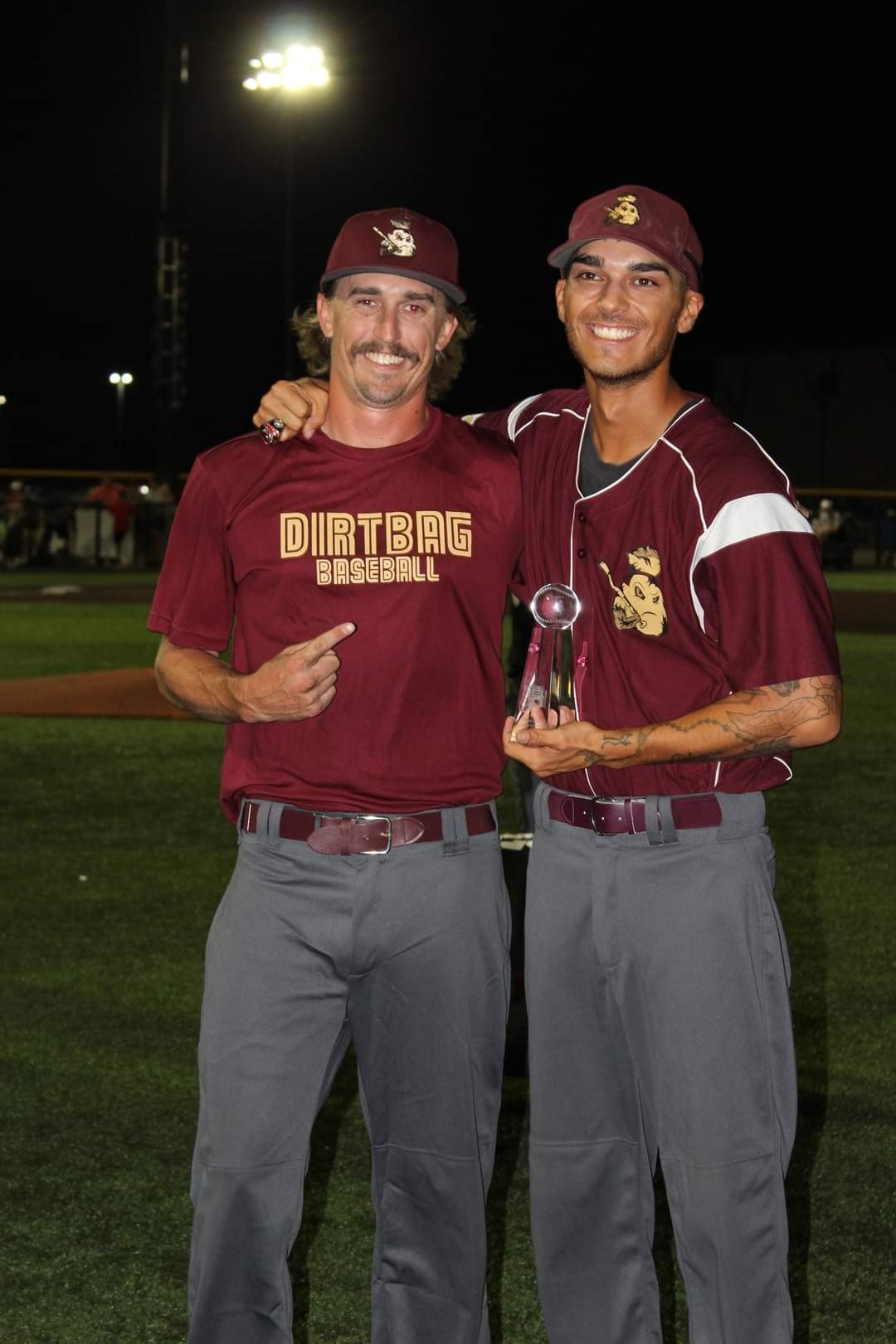We’re excited to introduce you to the always interesting and insightful CJ Henrichsen. We hope you’ll enjoy our conversation with CJ below.
Alright, CJ thanks for taking the time to share your stories and insights with us today. One deeply underappreciated facet of entrepreneurship is the kind of crazy stuff we have to deal with as business owners. Sometimes it’s crazy positive sometimes it’s crazy negative, but crazy experiences unite entrepreneurs regardless of industry. Can you share a crazy story with our readers?
“Do what you have to do to get the job done” has been a line near and dear to me and defined this organization.
The way Dirtbag came into existence and continued to stay alive is something that is still difficult to wrap my head around, crazy is probably the best descriptor. I took over and relocated a collegiate summer baseball team from a good friend. He and I started working together in 2019 as I coached for him. I was working as a delivery driver and trying to get back into baseball after my playing career ended almost decade prior. We crossed paths at one of my stops, he took me on as a part-time coach and started to show me the ropes. 2020 cancelled our season, so we spent an extended period of time preparing for 2021 – he was recruiting players and building relationships with university/college coaches while I was studying and working to find local supporters. It was about two months out from the start of that 2021 season when he let me know he was stepping away to deal with personal matters and take care of his family. This was a total shock and left a great deal of uncertainty in place as I was extremely green to the scene. The options on the table were:
– fold the organization and move on with life.
– keep it afloat for a year and be done.
– run with the idea Brian and I bullshitted on a couple nights per week. (Brian was my roommate at the time and will forever be known as BY in these writings).
Anxiety set in – this was set to be my first year as head coach, he recruited nearly the entire roster, I was a single dad with an infant son and working a full-time job. My friend helped when he could and I had guidance from a few other people, but I was essentially thrown into the fire with nothing more than a name, a logo, a roster and a couple host families… no coaches, no field, no money.
I explained the situation to BY and we both agreed the players deserved the summer they signed up for, so we set out to keep it alive for one more season. The league commissioner was aware of the situation and worked with us on payments to give time to collect funds. We moved the team from a small town in Kansas to Wichita – where I did most of my growing up and we both live. Then we got to work on building the tangible parts of the team: we got in with Friends University (BY’s alma mater) to play at their field for the year – also with the understanding that payments would be delayed, but paid – and I purchased jerseys and found a local printer to help with designing and printing. A big problem lingered and my knowledge for solving it was minimal: I had no other coaches and BY’s capacity was limited due to back injuries.
While enjoying wings and a beer at a bar, cold emailing college coaches across the region seeking players and panicking about the product I was about to put on the field, a guy who pitched with me in 2019 reached out asking if he could pick up some innings during the summer while he coached a high school travel team. I read what he asked, but was hyper focused on the coaching aspect. He met me and we discussed him playing and coaching and came away with the agreement that he would make it out when he was able to do so around his high school schedule and I would use him as a pitcher as he was needed. We had a three man crew in place and, after bringing on a handful of local players to round out the roster, I felt mostly comfortable going out to compete for the season.
We were able to hang around .500 on the year, make a decent run in a national tournament and the players, for the most part, had a good time. Enough players enjoyed their time and some of our opponents noticed how we operated that it generated interest after the season from college and university programs in placing players with us for the following summer. All of a sudden, the most challenging aspect for me – recruiting – looked like it was doable and what started as a “keep it afloat” project showed signs of being something we could make sustainable. Half-way through that season, I picked up a more lucrative driving job that allowed me to get all of the season’s bills settled and get myself into a better position in life. At that time, I was feeling an upswing in momentum and decided to push forward with another season.
BY had to return home to California to take of family members, leaving Tony and myself to get ready for 2022. This was my first crack at recruiting and building a team and I was excited to get after it. Having a handful of coaches reaching out shortly after the season made me feel like I was getting a good start on a roster and that the rest would fill out nicely, I understood the totality of the costs for a season, so nothing was supposed to come as a surprise, I had an affiliated associate scout reach out wanting to kickstart his coaching career with us. On the baseball side of things, we were on the up. Financially, we didn’t look as great, because it took me four months after the season to get everything paid off. Hesitance to work with me was justified, but painful. The product we created didn’t reflect the effort or integrity of those involved and I knew it. I felt like this had turned into a “prove it” moment. This was going to be my first time running through the process of setting up a season on my own, I had a year to collect money. recruit players and prepare for another season.
My naivety of the scene showed up quickly and the nervous confidence going into the off season was rattled. Most of my roster was recruited by January, I thought. I learned recruiting happens in waves and was reminded of how in flux the life of a college ball player is. As the school season drew closer, guys were deciding to play in more competitive leagues or to play closer to home so they could be with family for a couple months before going back to school. I was able to add a few guys to ease the pain, but once the college season began the next wave hit. Guys were getting injured and workloads for the spring season were clear, so coaches were shutting down pitchers and players for the summer. a week before the season opener, we had 20 guys on our roster and half of them weren’t able to report until two weeks into the season (rosters are typically 32-40 players and a season is 9 weeks including tournament). We showed up to our first game with ten players (the opposing team had 40+) and pulled out the win. Cool result, not the coolest presentation to a bunch of guys I had only spoken to on the phone or coached the year prior. Fortunately, this was a road game, so there was still one more kick in the shins on its way.
Another team was able to take over the field for 2022, so we had to find another, more cost-effective place to play. Tony, now coaching at a local high school as well, got us set up to use their facility for the season. The playing surface very well maintained and cared for and the area around the field has the potential to be a cool place for a little stadium. The potential of the field added to my eagerness prior to the season; unfortunately, the work needed to get there was expensive and extensive. The aesthetics were tough for our home games that season. There are no lights at this field, so all our games started at 5pm and in Kansas that’s still the heat of the day. The field had no shade, the home dugout was typically hotter than the area outside of it and there was nothing to block the oven-like breeze. I lost two phones, two tablets and an iPad to the heat while trying to record stats or live-stream games. I was working 50-60 hours per week year round, which hindered my ability to secure sponsorships or donations, but more significantly, it piled onto to the stress and exhaustion during season. Silver lining: being that busy and tired left me no time or energy to avoid the problems that popped up ALL. YEAR. LONG.
I ordered jerseys in January through a guy associated with our league who worked as a rep for an apparel company. He purchased for other teams of the league, so it seemed reliable and safe. I paid the bill off before the season with my paychecks as I could, but the government apparently held all of the orders for the league at customs and I never received any jerseys. Fortunately, I had ordered a set of jerseys I wanted to surprise players with during the season. These became our only jerseys for the year. They were black and totally helped the 100+ degree temps feel tropical… at least we looked good.
So, back to our first game! One guy quit immediately after the game because it wasn’t what he thought he signed up for. As a former player, I totally understand where he was coming from. The situation showed me that the patience I was afforded in year one wasn’t going to be something given going forward, we were expected to hit the standard of collegiate summer baseball. Coaching wise, on-field talent wise, we had it. What we lacked was outside funding, so our jerseys and facilities were a step or two… or three below the others in our league and around the region. The sinking feeling in my gut started because we looked like the Bad News Bears compared to the rest of the league and I’m still trying to find pitching to survive the season. I’m still latched on my vision of success for the year, so I’m undeterred and powering forward. I’m making good money and I have reinforcements coming: that affiliated scout is due to arrive for our second game.
Scouts in the baseball world are very well connected and, in most cases, able to help draw/guide players to a team. The Scout I had brought on was able to talk a few guys into playing with us for the summer – their contributions for the season were absolutely massive and they continue to play a crucial in the Dirtbag organization today. Unfortunately, Scout showed for two games and vanished off the face of the Earth. His absence hurt from the standpoint of I was worried the guys he recruited out would leave and I felt like I was upfront and honest about the state of the organization. “It doesn’t look pretty now, but we do right by our players and we’re moving in the right direction.” I remember pacing my living room and ending the discussion on that sentence. Intentions are only accepted when results are produced and to this point, I have produced little in the public eye.
My roster is mixed with high-end collegiate talent and guys trying to get back into baseball and earn a scholarship, I am the only full-time coach (Tony is still coaching high school travel ball on weekends and making amazing contributions to Dirtbag when he can and BY is in Cali) and I am paying parts of this season every two weeks. I cannot put into words the race my brain was on for three straight months. ‘If this fails, I’ll never be apart of the game again’ was the dominating thought through the first three weeks. I broke down on my dad’s work bench and spilled everything to him. I didn’t know if I would be able to keep the team afloat for a full season.
I feel like those feelings checked at the gate and I maintained a business-as-usual attitude at the field, allowing the blue-collar mentality I had developed over the previous years to show through and set the example to the players – do your job so well that you don’t have to go back and then go home. I showed up, focused on taking care of my players and making sure they were in a position to succeed, managed the team to a W and went home to my boy. Those young men went out, played beyond their perceived abilities and created a culture that lasts to this day. The wildest part of that grind is what those guys left behind.
Entering the final two weeks of the season, I am struggling to stay afloat financially and players are setting their departure dates –
most are leaving the day after our regular season ends because of their report dates to school and desire to see family. College baseball players are property of their schools for nine months of the year. Some guys see their families at winter break, some haven’t seen family since they left home. I will never discourage a person from being with family, no matter the position it puts the organization in. Two thirds of my roster has left prior to the SummerBall Showdown – a national tournament that started the same year Dirtbag did. Most of the teams were from our league, a couple other collegiate level teams were in, some men’s league teams and some high school teams. The talent pool was diverse.
It’s eight days before the deadline to turn in rosters for the tournament and I decide to announce that I will not be entering a team. Between the exodus, my job and missing my son, I had no desire to recruit a team and slog through a five day tournament in 100+ degree weather at a complex of concrete, artificial turf and chain link fence. So, five days before the deadline, one of my local players convinces me he can bring in enough friends to field a team and we pursue it. What he vaguely hinted at was he knew some of the best players in the area.
For the next week, every hardship the team, Tony and myself endured was paid back in full.
I studied the layout of the tournament and put together a rough plan to manage pitching. I wasn’t excited or optimistic about being there, but wasn’t about to half-ass an appearance. My personal focus was on knocking off the reigning champs, cared about little else. Pool play led to seeding and the start of bracket play, so all we had to do was collect two wins to be in a good position. Our first game was against one of the best teams in the tournament and I knew it would define our fate.
The very first player I ever recruited the season before was Tre and we connected. I gave him an opportunity most coaches wouldn’t and he made the absolute most of it – he was a starting pitcher for me that year. He came back for this 2022 season and provided the attitude that set the tone for what it is to be a Dirtbag. He worked in whatever role was asked – starter, opener, reliever, closer – never bitched about the field, the heat or the struggles, he simply did his job as best he could and had a good time doing it. He was one of a few players that summer that played with experience – both with Dirtbag and at the Division I level.
I gave Tre the ball because I trusted him to leave it all on the field and because he left for school the following day. The performance he left on the field was one most guys dream on for their whole career: he collected the win giving up one run through 10 innings while enduring a 45 minute lightning delay. That effort set us up to do mean things to our opponents the rest of the tournament. I am comfortable saying he showed us the public that day. His emotion, that passion put our guys on notice. The players that arrived for that tournament saw the way Tre carried himself and handled business, they bought in on how we worked and what we stood for. For the next three games, I was able to manage pitching and playing time to ensure our big guns were rested enough for the bracket run. We made it to the quarter finals before any of my top pitchers saw action. I was able to throw my ace against the team that held the titles of ‘defending tournament champion’ and ‘2x reigning league champion’. We were a hard fought 0-4 against them on the season.
The night before that matchup, Tony and I sat and watched the reigning champs play the game that led them to us. Tony won the game for us right there in the stands. The detailed scouting report he compiled on every hitter that game propelled every critical move we made as we squared off with them. Our ace racked up 14 strikeouts over 9 innings while our bats and defense fought to hold the early lead we took. We saw the wind leave their sails every time he made an adjustment based on the scouting report and we found success because of it. The audible explosion from the stands on the final out was surreal. I remember some things after, but that bit is still a blur. I know I was worried about blowing all our energy in that game and losing the semi-final. My only happy thought was, “my #2 is starting and I still haven’t used my closer.” The closer not being used matters because his special weapon is not how hard he throws.
We win the semi final, my starting pitcher goes 7+ innings strong and we controlled most of the game… up until that + on his line. a 7-0 lead quickly turned into a 7-6 ball game after some fireworks between dugouts. We still pulled out the win, but the energy used over the previous two games was extreme and the championship game was played a few hours after that semi final game… against a team with which we were very familiar.
We enter the championship game tired and on our final arms. Our starting pitcher was only able to make it through one inning before succumbing to an elbow injury. We had an 18 year old ingoing freshman hold the fort down on the mound for a couple innings, he gave up some hard contact and a run, but held his own against an experienced, dangerous lineup. As I am pacing in front of our dugout calculating my next pitching move, our ace asserted himself as the next option, began getting ready and was able to shut the other team down and get the ball to our closer – who’s specialty was widely known.
Our closer had a pick-off move to second base that was internet famous (a clip of the move gathered 2M+ views) and a topic of debate among coaches about its legality (it is legal, very few people can control their body to do what he does). He caught 11 runners at second and three at first on the season, numbers that take most pitchers a couple years to get to. his skill was known throughout the league.
We enter the bottom of the 9th with a nervous 5-2 lead. A couple walks and a few base hits suddenly put us in a spot with bases loaded, two outs and a one run lead. “This is it.” crossed my mind as the next hitter walked up. He took the first pitch and I saw the light. The runner at second base was taking an extremely big lead – he was the last out we needed. Our dugout, fans… probably even the other dugout knew it was coming. Our pitcher came set, lifted his leg to start his motion, the runner took two shuffles off the base and was caught. Eggs turned, threw it to Zay and the celebration was on.
That pick kept this organization alive. We made it through the season financially better than the one before, but the toll it took on me was unenjoyable. Between work and baseball, the summer had beat me down physically and mentally – I missed my son, mostly only saw him while he was asleep. I was feeling more pressure from baseball now than I ever did while playing. I still had bills to pay – the uniform debacle set me back a few thousand, league dues were nearly caught up and my truck had been t-boned by a lady running a stop sign. Following the end of the regular season, I just wanted to work a job and build a lifestyle to raise my son.
That group of players and coaches was special. We held our first practice before the tournament and the air around that group was different, the energy was young and focused. They were hungry and knew how to compete, there was a new life in the group. I don’t know if it was hope, confidence or exhaustion, but I quit my job to run that team in the tournament. That tournament week was one of the scariest, most fun moments I have ever experienced. We played everyday, so it was easier to focus on the task at hand, but the unavoidable mind storm of ‘what next’ kept me running. One loss would have eliminated us, I would have gone back to work to clear the debts, folded the organization and moved on with my life. Winning the prize put everything related to baseball financially even, taking the biggest weight off my shoulders. There was a respectable crowd at the game and this was our first time ever truly being seen by the public (teams in that league do not draw more that 20-60 people for games). Our personality, work ethic and brand were a hit. It started to feel like we could garner meaningful public support. The journey had come to a fork in the road and the path I chose put us in a spot to do something special in the region.
It’s crazy to think that what started as a ‘keep it alive for one season’ made it through a second season and more. It’s even crazier that one game, one win propelled that organization from life support to the promising machine it is now. This is still young and we are working through the bumps, but building as opposed to surviving gives us purpose and direction. Our collegiate team moved on to a more competitive, nationally known league giving our players and personnel a more visible platform to the public. Tony now runs our high school development operation and BY returned from California to build Dirtbag. We have been building relationships within the baseball community and local community to help further our brand and build our presence in the Wichita and surrounding areas. I expect to have a website and team store launched by March and propelling us into our next phase of growth.
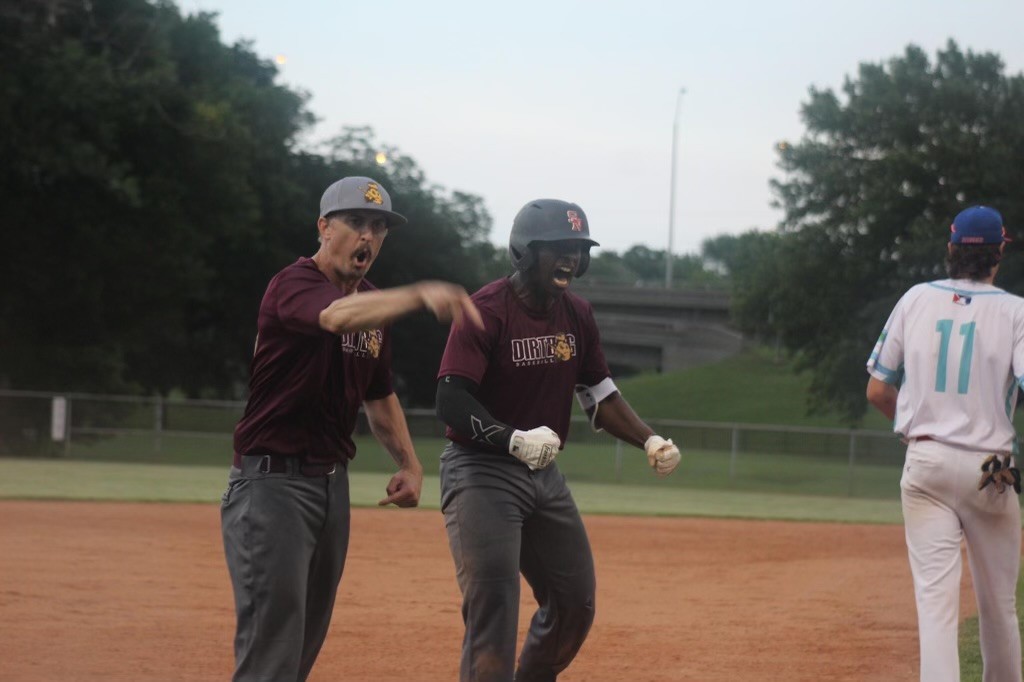
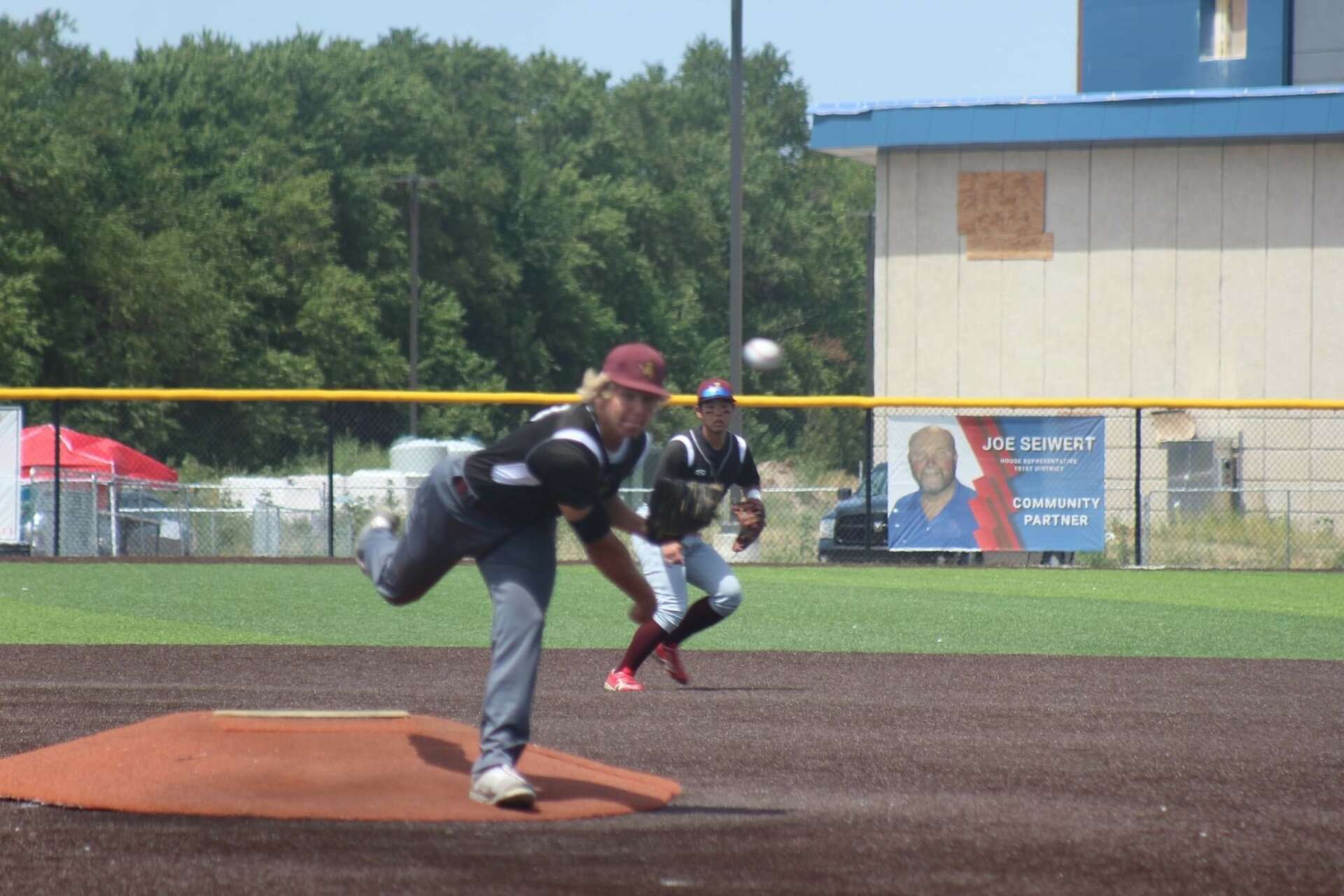
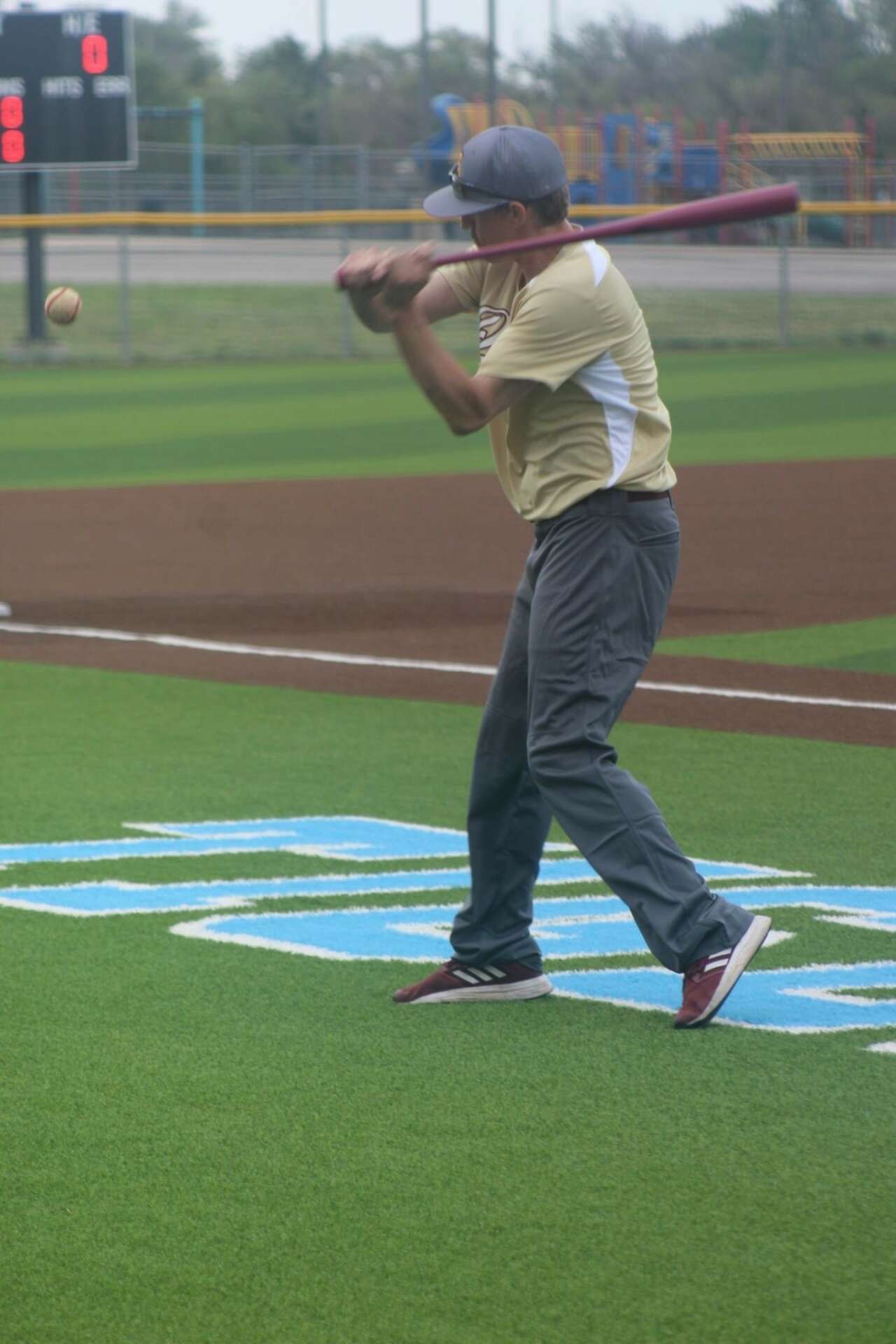
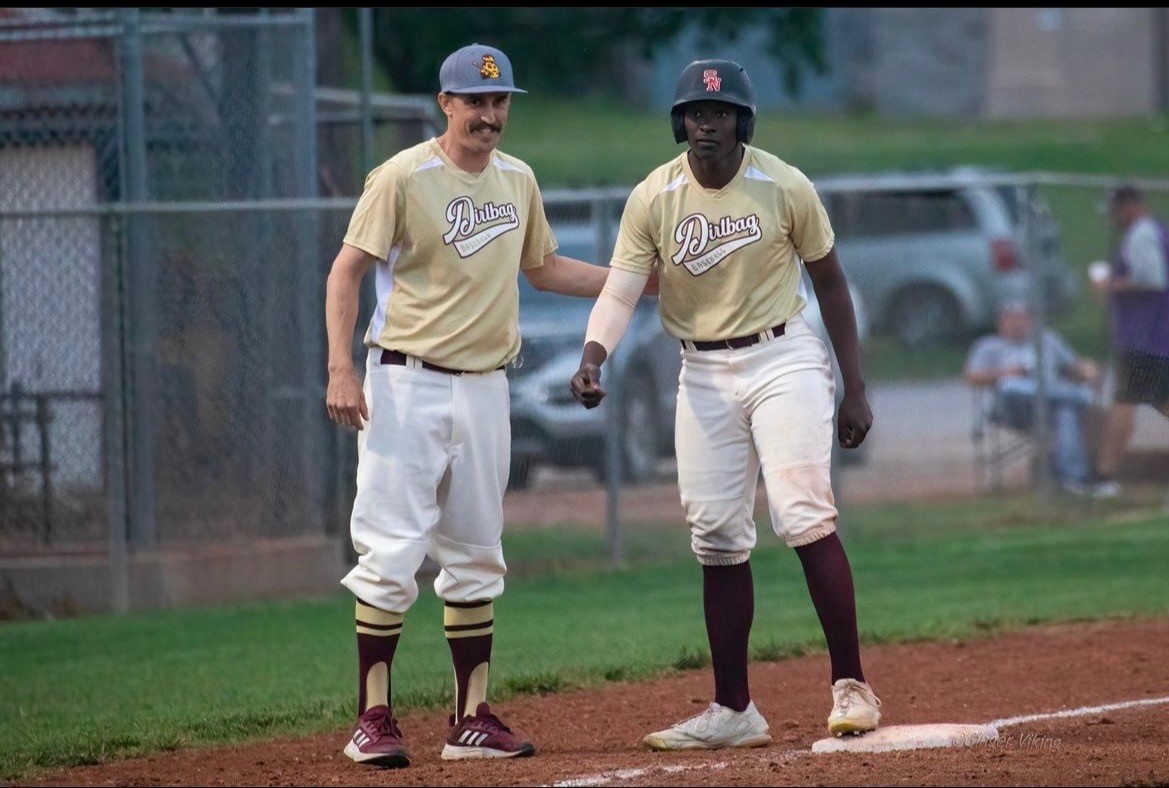
CJ, love having you share your insights with us. Before we ask you more questions, maybe you can take a moment to introduce yourself to our readers who might have missed our earlier conversations?
My name is CJ Henrichsen and I am the President/GM of the Dirtbag Baseball Club. I grew up mostly in Wichita playing baseball through high school and into college before a series of arm injuries diversified my college experience and pushed me to hang up the spikes in order to complete my degrees at Kansas State University. Life after playing was a big adjustment – I was still in school but had way more time on my hands than I was accustomed to, little interest in club/group activities or frat life, so I dove into reading and listening to the people of Baseball Prospectus, FanGraphs and SABR going down the rabbit hole of player development and analytics. Initially, I used that knowledge to my advantage for fantasy baseball purposes, but am seeing that knowledge come through now within Dirtbag. Understanding the language, approach and goals used at the highest levels allows us to observe where players are, on the development spectrum, and communicate with them about how to go about improving and getting on a path to take the next step up in their game.
I am proud of the culture we are building and the platform we provide to players. We are far from a finsihed, or polished product, but we are building everyday and working to improve operations. Considering the feedback and the relationships guys walk away with after their time here and in talking with fans and hosts, I think we do a pretty good job of balancing business and fun, occasionally joining the two to create a unique experience for players, their families and our host families and anyone who comes out to a game. In addition to the baseball teachings – mechanics, strategy, discipline – we try to teach life as well. Playing baseball is finite, having a plan for the days after a guy hangs up the spikes is important. I knew nothing of the recruiting process to college baseball when I was in high school, even while I was actively talking with and recruited by college coaches – for the longest time, I thought guys got excepted to the school and then tried out. Unless a player has family or high school coaches guiding them, it is hard to fully understand the recruiting process and how it all works. Researching to figure that out on top of school and life isn’t fair to a kid. We are working to be a source any player can refer to for an honest assessment of the recruiting process and how to present oneself and navigate throughout the process.
Our organization stands to serve more than just the baseball community, we are working to make a more meaningful impact in the Wichita area through community service and engaging with locally owned businesses and groups. We have never charge gate fees and never will because I believe families should be able to enjoy a baseball game together without having to worry about how it’s going to hit the bank account. As we have established a quality on-field product it has become possible to reach out into the community and put ourselves in a position to bring people together or make a meaningful impact. We are excited for what is in store for 2024!
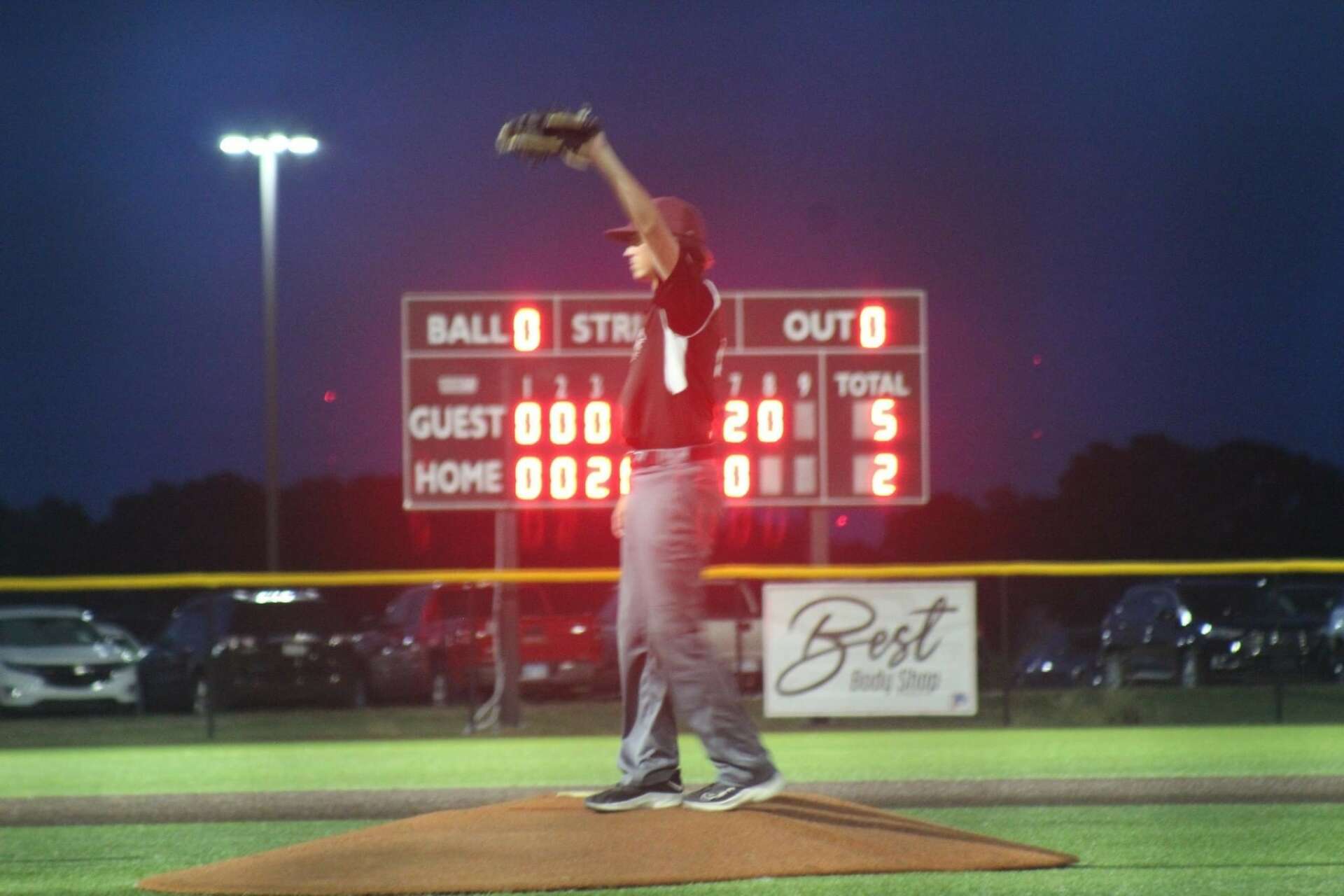
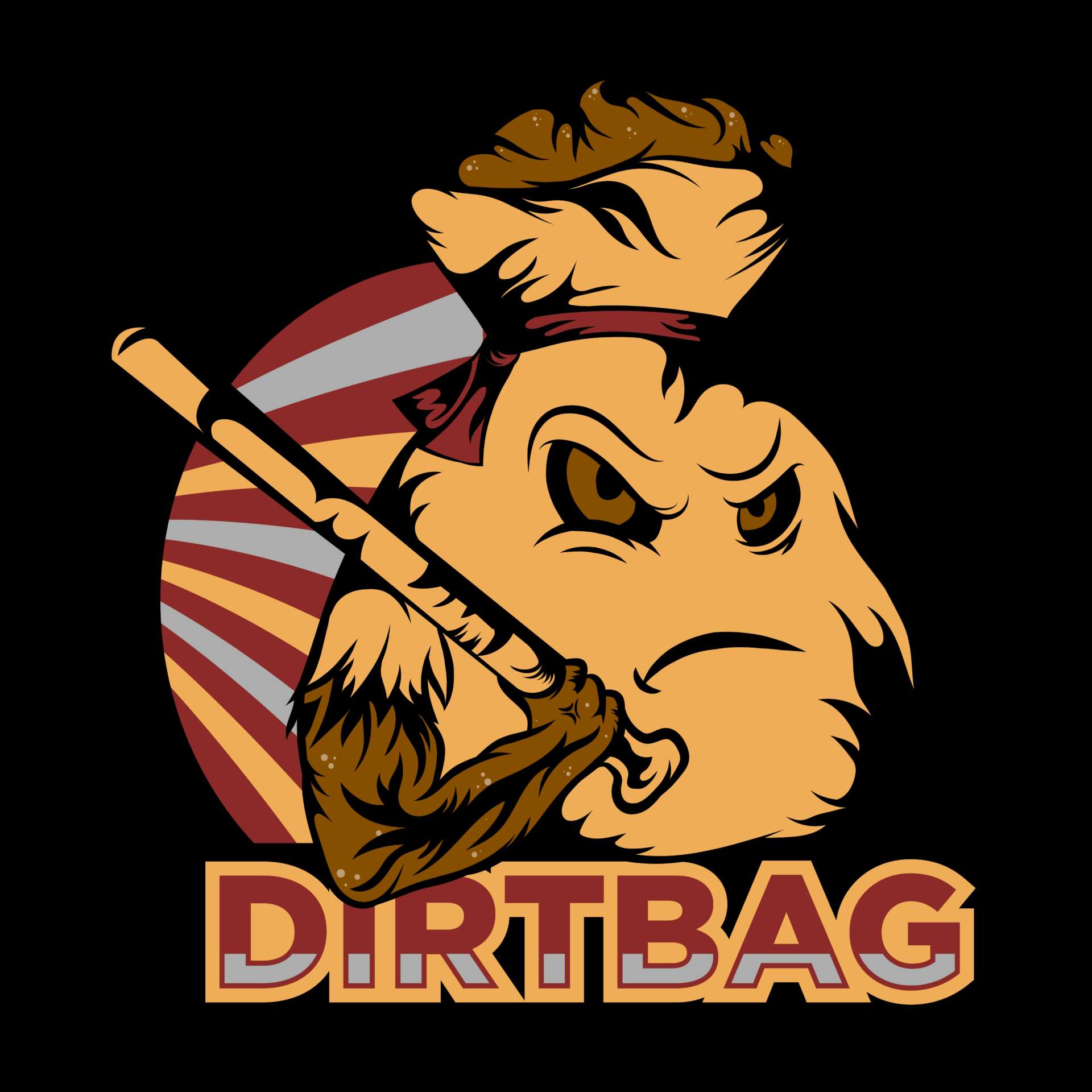
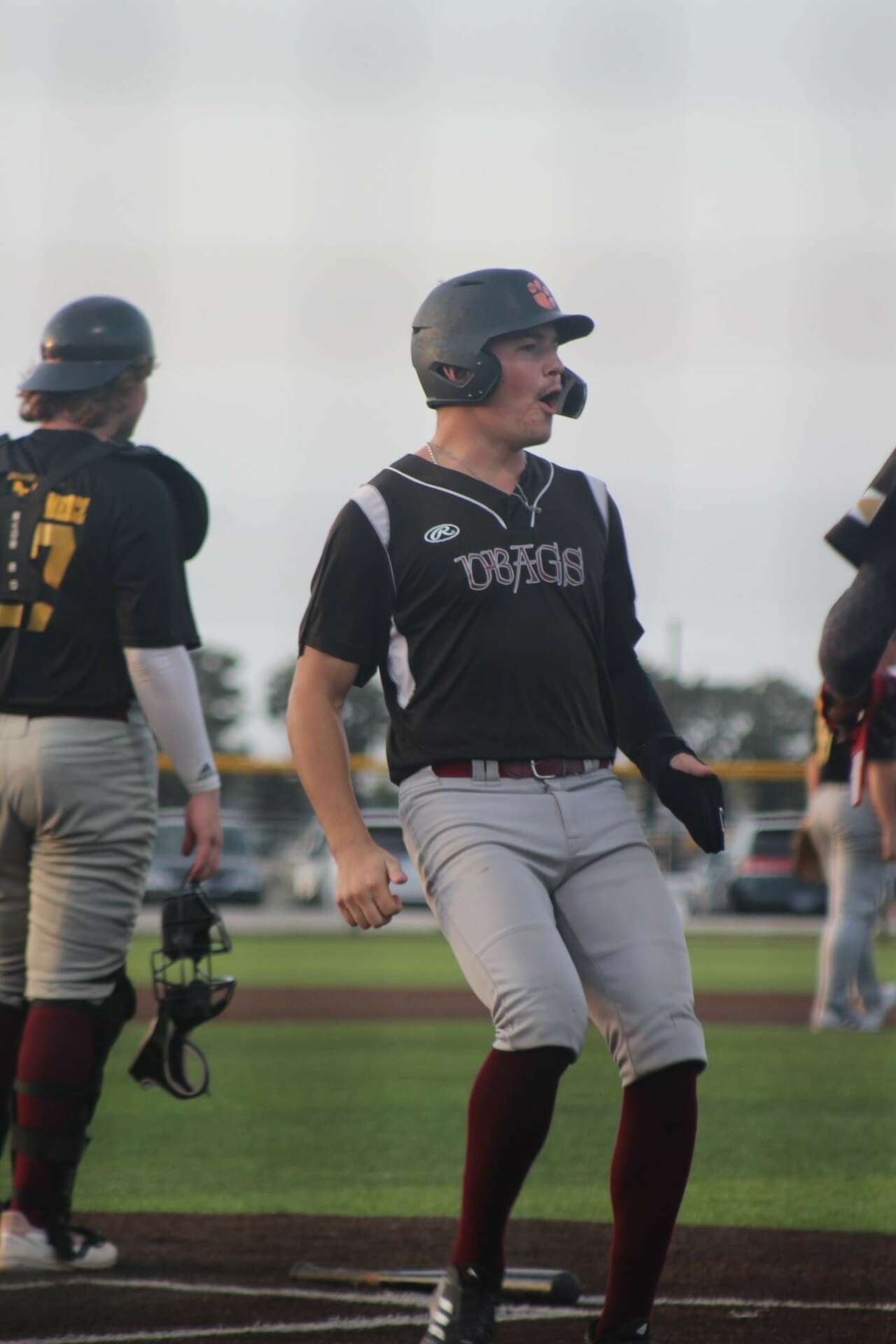
How’d you build such a strong reputation within your market?
“Always do right by your players”
Our ability to create family is the biggest reason we have our reputation. Guys come in from across the world for two months – some haven’t seen their family in almost a year because they have been off at school. Creating a family atmosphere and helping guys feel like Wichita is home is crucial to creating a positive attitude. Comfortable, happy players generate the best performance results.
There are a couple separate markets I have to play, but they feed off each other: players and coaches/parents. Our reputation was established by serving our players and providing an experience where they were able to work and improve, but also relax and unwind after 9-10 months of the grind at college. I feel like shifting the focus on the players wants/needs rather than trying to compete with other teams in the area is what set us apart from them all. While other teams were chasing talent and trying win a season, we had to improve the players we had. We were building meaningful relationships and connections with guys and that paid of better than landing any highly talented player could have. Our players have freedom to be themselves, speak their minds, question everything and do what they feel is best in any situation. We facilitate most anything, so long as it fits within our culture and the etiquette of the game. That approach has made our platform attractive to players, which has made recruiting more enjoyable. We have gone from having to sell what we want to do and our vision, to describing what we do and figuring if that individual will fit and benefit from time with us. The approach has also given us a reputation as being development focused. Coaches can send guys here to work on the physical and mental aspects of the game and the players will report back to school in a positive mindset and demonstrating improvement.
Parents can sign their high school players up and expect that we will get them in a position to compete or accel on their school teams and work toward playing after high school – if that is what the player wants. Our experience building family at the college level has helped bring the families together at the high school level, an approach few, if any other teams are taking in this area. I feel like, for year one, we have had a tremendous response from families within the organization and the intrigue from people seeing us for the first time lets me know that we are doing something correctly.
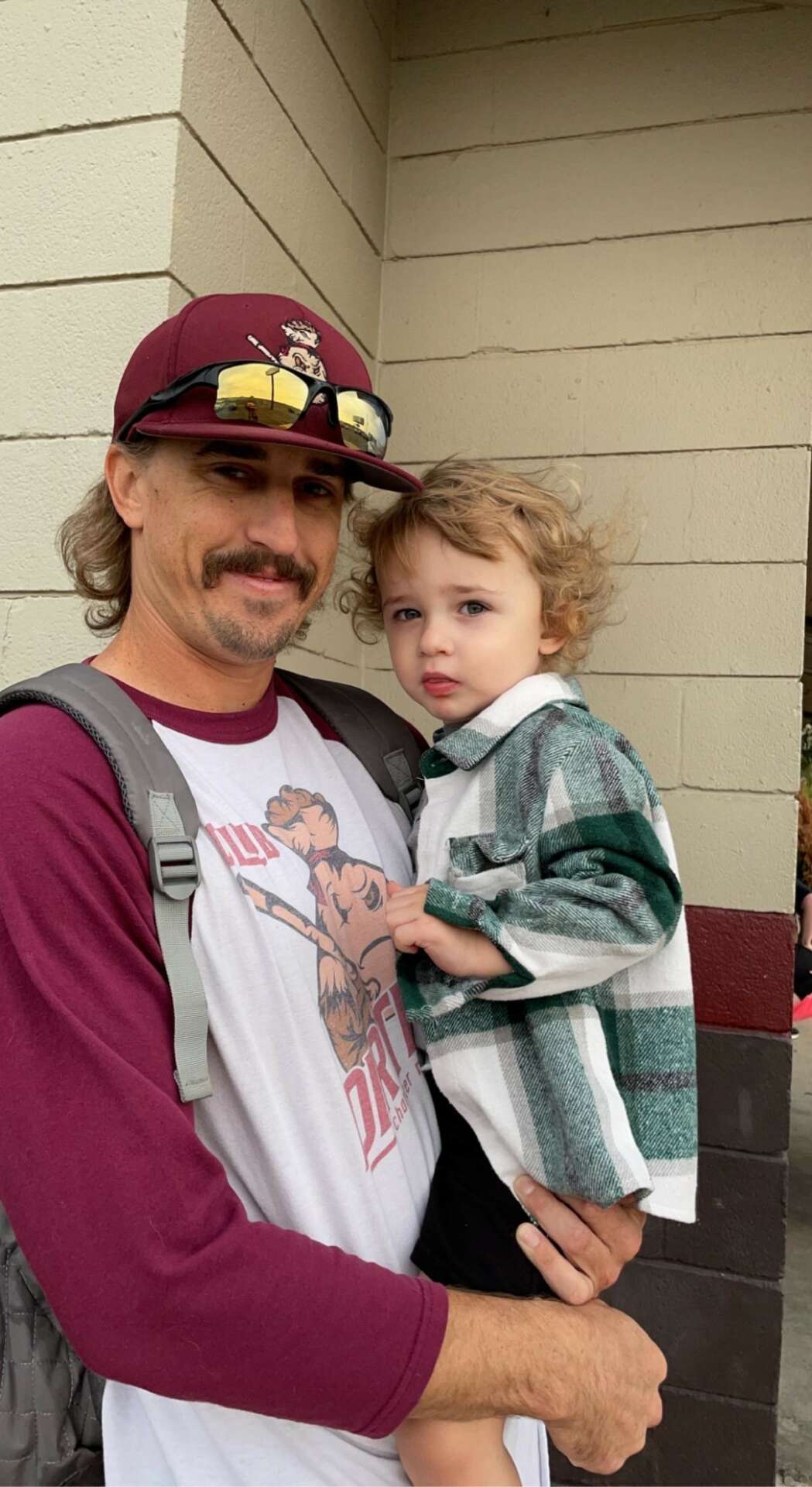
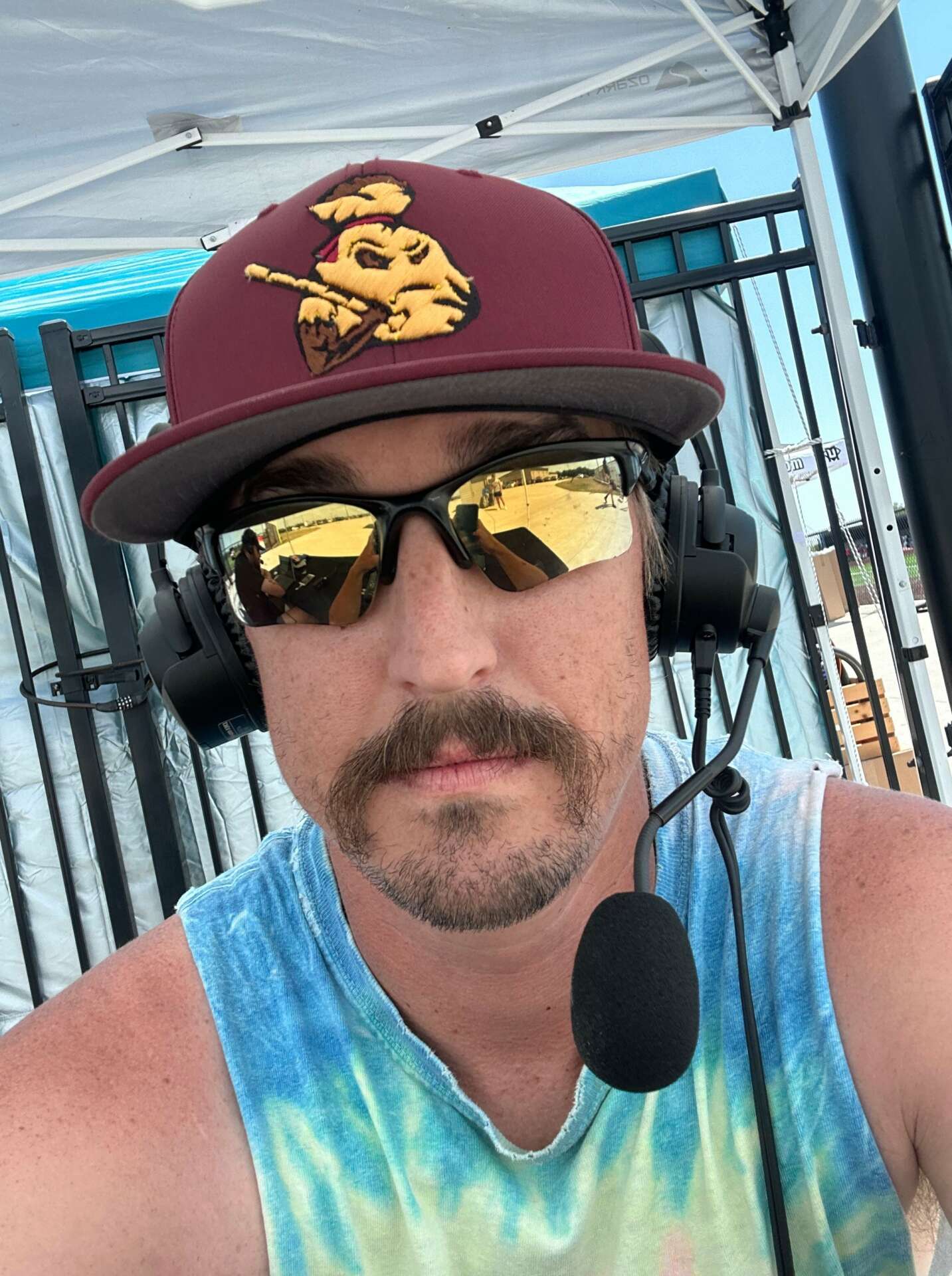
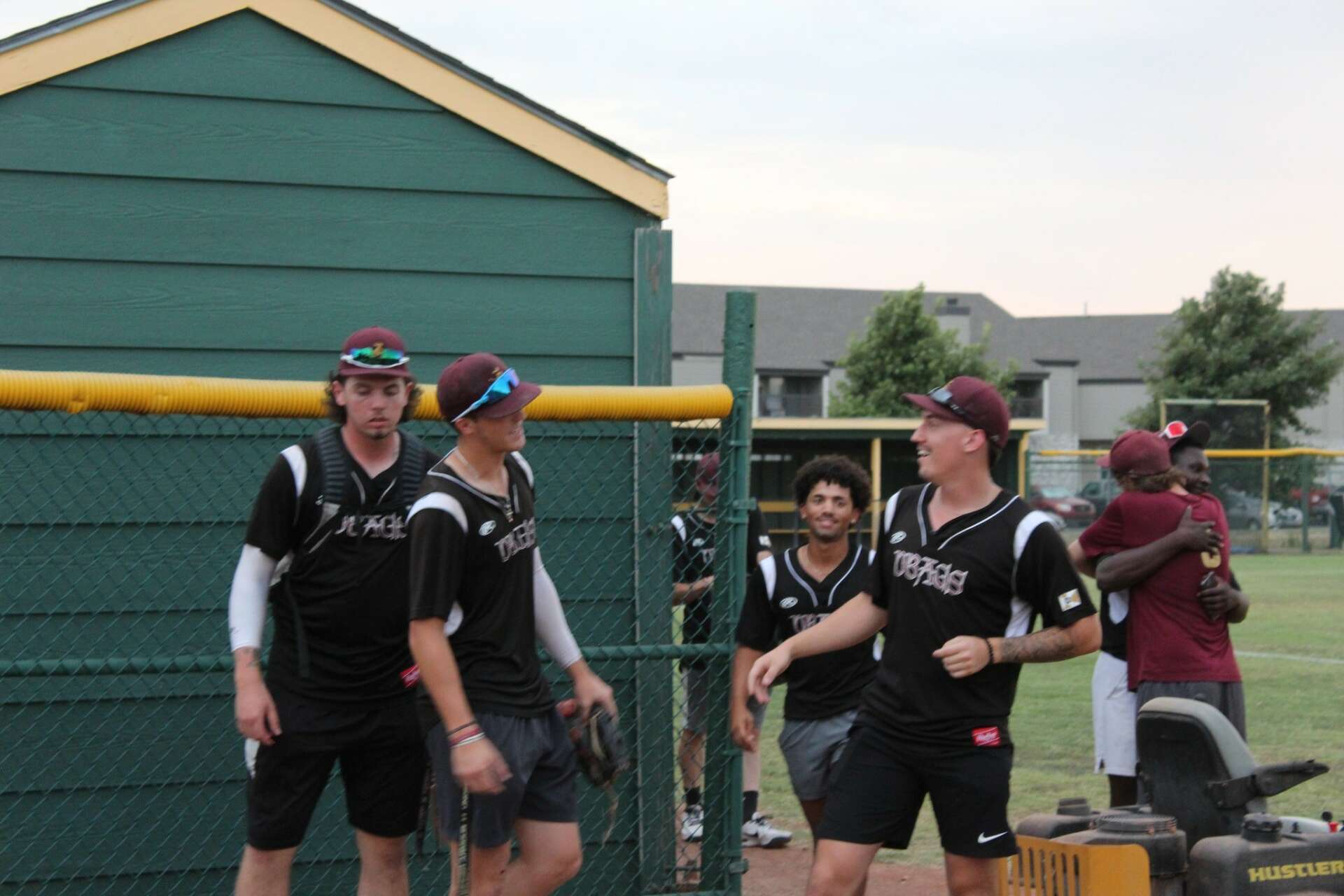
Do you have any insights you can share related to maintaining high team morale?
“Not everyone can be the star shortstop, but anyone can fill a role”
I am speaking entirely from my experience and I know my approach to things tends to be unique, so I don’t know that this is advice so much as it is a different way of looking at management. I know that going into a season with the expectation of what a team will be – composition, attitude, ability etc – will leave me in a tight position with few options to navigate forward. Baseball players are not ideas or commodities, they are people with skills, talents and flaws; so the ability to recognize how everyone fits together is crucial, the time it takes to do so is even more critical. Everyone comes here for a different reason, with a different past and is working for a different future… but all of those differences share a commonality we can all unite around – we are working to be better baseball players and men (women if and when the time comes). I’m not here to celebrate or sympathize with anyone’s history or ambition. I can empathize with most stories, but I am here to help that person overcome their struggles or fine-tune their skills and get on a path that will lead them to taking the next step in their careers or life. I feel like that builds trust and allows us to work together quickly.
Getting players to understand their role and it’s importance to the team is the biggest part of the summer because bad attitude and empty morale will derail improvements and success. We carry a 28-40 man roster, not everyone plays all the time and that’s not easy for some people to understand or tolerate. Part of managing people is managing expectations and communicating roles and those expectations is important. More important is providing opportunity and making sure guys know they are not confined to a role. Sometimes, that ace pitcher you want so bad was chilling in your bullpen the whole time. Leaving the door open for players to show they can out-perform their role is important for everyone wearing the logo. Adrenaline and a desire to prove oneself is a fantastic combination for success and momentum – not just for the individual, but for the team. Guys see another having success and outperforming his perceived role and the thought of “if he can, so can I” is fostered.
Building the team up also means cutting cancer out. Some people come in with their expectations of what a baseball team should be and have a hard time adjusting those expectations to what is happening around them. There is nothing wrong with differing views or missed expectations because the ability to find common ground and a path forward will dictate whether that relationship is sustainable. Sometimes, a one-on-one conversation can solve the issue, sometimes you simply have to cut ties and move on. That negative attitude may sit on the end of the bench by itself, but the rest of the team sees it and responds to it. If the leader allows it to continue, the integrity of the mission is lost and players will be less inclined to buy into the vision, shifting focus away from the overall goal and onto the in-house drama. Even if people want to watch drama, no one wants to be apart of or associated with it. Creating an environment where guys want to show up to work is critical to keeping attitudes positive, morale up and players motivated.
Contact Info:
- Website: www.clubdirtbag.com
- Instagram: dirtbag_baseball_club
- Facebook: Dirtbag Baseball Club
- Twitter: @Dirtbagbsb
- Youtube: Dirtbag Baseball Club
Image Credits
Ginger Viking Photography, Matt Bucher Dave Buche Lori Howard


